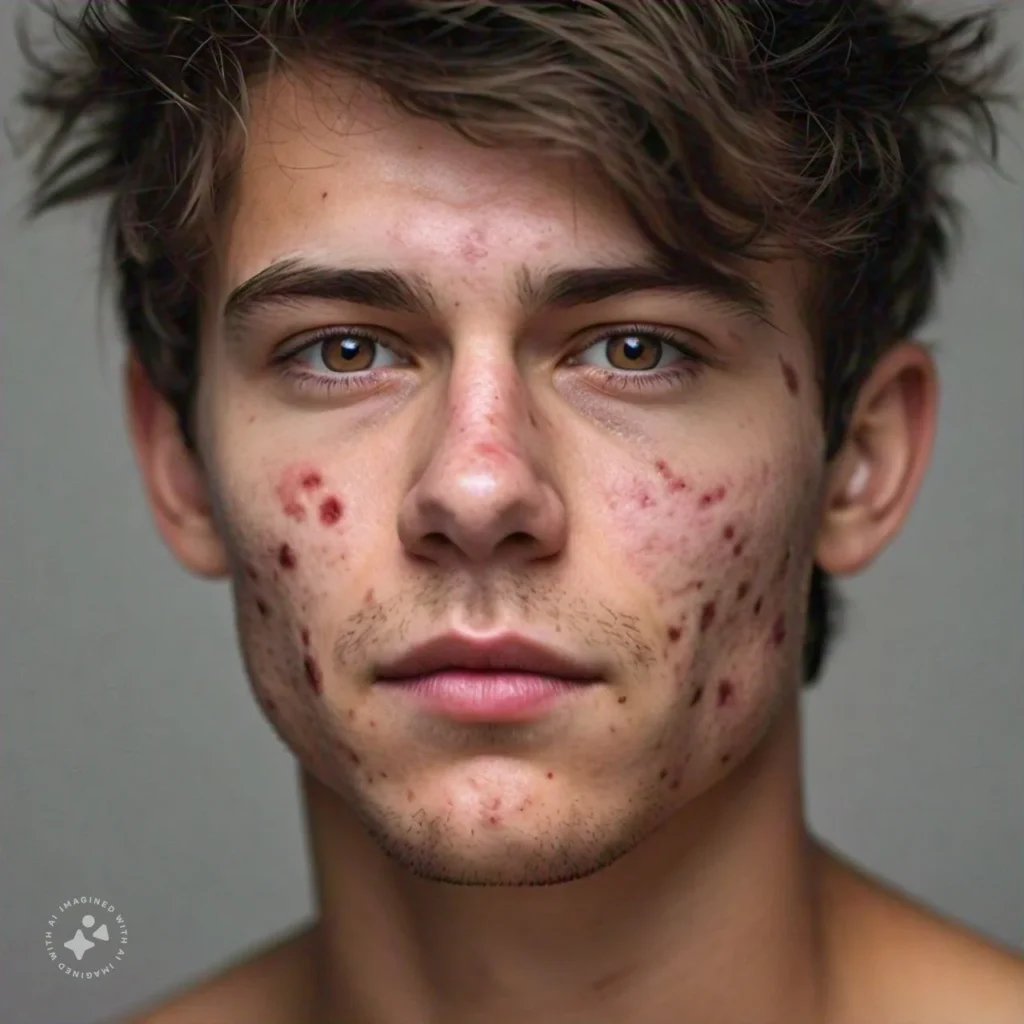Acne is a common skin problem that occurs all around the world. It doesn’t matter whether you’re in Venezuela or the USA; everyone at a certain point has suffered from acne, and because it has been around since the dawn of human civilization, there are many myths about acne that have been passed down from generations to generations.
Today on Sphere medium, I’ll share five myths and facts about acne that need to die or be buried once and for all!
5 Myths and facts about acne that need to die!

Myths and facts about acne greasy food causes acne!
Myth
There is a saying you are what you eat, so there’s a myth that eating greasy, oily food makes skin oily. Also many believes that eating mango causes acne.
Fact
There were studies done that show that consuming greasy food has no correlation whatsoever with acne. The reason why consuming greasy food does not equate to acne is because when oily food is consumed, our stomach breaks down all the oil into smaller portions and is absorbed by the body, which is then used for energy. So the chances of your skin taking up all these small molecules and combining them and making sebum are negligible.
Oily food does not cause acne; however, consuming high-calorie food has a correlation with acne, and more often than not, greasy food is definitely high in calories, so even though there’s no direct correlation between greasy oily food and acne, for the sake of your own health, you should reduce the amount of oily food.
If you’re interested in reading if mangos cause acne, then read “Does mango cause acne? Is there a connection? Uncovering the truth!” at Sphere Medium.

Myths and facts about acne Teenage acne

Myth
Acne only affects teenagers
Fact
Now in our teenage years, it doesn’t matter whether you’re female or male; our body undergoes hormonal changes. One of the hormone that is excreted is known as dihydrotestosterone, or DHT. In teenagers, DHT levels go up and trigger more sebum production; hence, if you notice someone in their teenage years generally has more pimples than someone who is much older, and yes, acne actually reduces as we get older.
However, there are two different conditions of acne whereby it follows you for the rest of your life. The first is called persistent acne, it continues from your teenage years right up to your adulthood.
Another form of acne is called adult acne, which shows up at the age of 24 to 25. They had acne-free skin in their teenage years but developed acne in the later years, so acne is definitely not just limited to teenagers but all adults as well.

Myths and facts about acne Pop it
Myth
The best way to get rid of a pimple is by popping it. The myth is that when one have acne they have dirty blood or there’s pus under the skin and one needs to get rid of them, but this is actually untrue.
Fact
The act of popping an acne can actually aggravate the acne, making it spread even quicker and definitely leading to very severe acne scars, so if it’s possible, try not to pop acne and use the following medications: You can always use benzoyl peroxide to do a spot treatment on your acne. You can use a one- to two-percent salicylic acid serum and put it on acne to dry it up. If you’ve tried all these over-the-counter medications and that’s not working, please visit your nearest doctor to get yourself a prescription.

Myths and facts about acne unhygienic skin
Myth
If a person doesn’t shower much or they don’t use the right skin care, they’ll get acne.
Fact
Acne is a cosmetic problem. Yes, it doesn’t look nice, and it actually leads to a reduction in self-confidence. But it has nothing to do with the fact that your skin is unclean or very clean.
A clean skin can still get acne. Acne is an infection of the pilosebaceous unit. When pores get accumulated by sebum due to the rise of DHT, which is the dihydrotestosterone hormone, over time the pores get blocked not only with sebum but with dead skin cells, and with the introduction of a bacteria called a P. acnes, we get acne.
Researchers have taken skin samples from a large population and discovered that this bacteria, P.acnes, is present in roughly 70 percent of the population, which means as you read this article, you might be having it on your skin.
Now the thing is if bacteria is not active at this moment, you might not get acne, so for those who are suffering from acne, don’t worry, your skin is not unclean; it’s just that you have an infection that needs to be dealt with.

Myths and facts about acne genetics play a role
Myth
Acne runs in our family genes.
Fact
Acne is not inherited. Yes, acne has some genetic predisposition; however, a large portion of it is caused by our lifestyle, the skin care, and the most important food we consume, so this myth that acne is due to genetics is actually false.
So guys, at what age did you get your first pimple? And how many myths have you heard about acne, maybe from your grandma or your mom? Hopefully I was able to debunk them. Also, if you’re dealing with acne, please give this article a read too: “From Clogged Pores to Acne: Top 5 Skincare Mistakes Oily Skin Types Need to Avoid” at Spheremedium.
FAQs
Yes, fried foods cause acne because they are high in calories, not because they’re cooked in oil.
Teenagers are more prone to getting acne, especially if they have oily skin too.
Yes, there is a high chance you will because your skin will have reminders of pollution, dirt, and cosmetics used in a day, which will favor acne.
Use benzoyl peroxide
Useful Links

I am a dentist, baker, and fitness and health enthusiast with a passion for living life to the fullest. I am foodie and explorer, always seeking new adventures and flavors. Currently working on my own skincare brand.





1 Comment
[…] consider reading this article if you are suffering from acne: “5 myths and facts about acne that need to die” at Sphere Medium. Remember to stay safe, stay healthy, and most importantly, stay […]